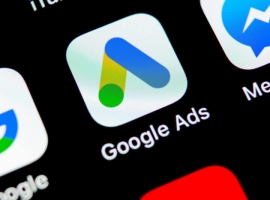Verizon-owned Oath has unified its ad tech stack under the new brand name Oath Ad Platforms. The effort has been underway for more than a year and follows Google and Amazon’s ad tech stack consolidations in recent months.
Oath Ad Platforms for marketers rolls up technology gained from several acquisitions: BrightRoll, One by AOL and Yahoo Gemini. The new stack includes a unified demand-side platform (DSP), native and search marketplace and programmatic access to Oath inventory through its own supply-side platform (SSP) and some 40 ad exchanges.
The DSP offers access to Oath’s first-party data and partner data with inventory across AOL, Yahoo and other owned and operated properties.
New capabilities include connected TV inventory. Ad formats include AR, 3D, Tiles and Mobile Moments as well as two new e-commerce formats called Countdown and Mobile Wallet that allow users to shop from ads on their phones. Search advertising is available in the US only, while native inventory is available globally, both on the web and in-app through its Flurry network.
Oath Ad Platforms for publishers encompasses products for onmichannel, video, broadcast and app publishers. The company says it plans to release an Oath Ads SDK next year.
“Oath Ad Platforms is the culmination of years of experience creating world class advertising offerings powered by data and designed to build brands,” said Tim Armstrong, CEO of Oath, in a statement. “We’ve combined the best assets from our trusted platforms with new functionality to drive meaningful results for advertisers and publishers. Oath Ad Platforms is another example of our longstanding commitment to innovation, providing a solution to today’s digital advertising challenges.”
Tim Armstrong reportedly stepping down
Armstrong began piecing together much of what consists Oath’s tech stack back when he was CEO of AOL, which Verizon acquired in 2015. As head of Oath, he then oversaw Verizon’s acquisition of Yahoo in 2017. Now it appears Armstrong will step down. The Wall Street Journal reported last Friday that Armstrong is in talks to leave the company as soon as next month.
A duopoly challenger?
There were heightened expectations within the advertising industry that Verizon’s scale, data and resources could help make Oath a viable challenger to the duopoly of Facebook and Google.
The Journal report says that Verizon has not been willing to share as much user data for ad targeting as Oath had initially anticipated. (I recall a conversation shortly after the Verizon acquisition with an AOL executive giddy about the prospect of accessing Verizon’s trove of user data.) Verizon makes anonymized data on users for ad targeting, but details such as location, browsing history and app usage are only available when users opt in to the Verizon Selects loyalty program. That opt-in universe is only about 10 million subscribers and just roughly a third of Verizon 116 million subscribers were verified for addressable targeting, according to the Journal.
Yet even without the keys to the full Verizon data vault, Oath has access to data from across its properties, including publisher sites such as Yahoo Sports, Tumblr, and TechCrunch; Yahoo search and mail; and Flurry and AOL networks. Whether that’s attractive enough to advertisers for Oath to make a real run at Facebook, Google — or even Amazon — remains to be seen.
[This article originally appeared on MarTech Today.]
The post Oath combines its ad tech assets under new Oath Ad Platforms brand appeared first on Marketing Land.
Original article source: https://marketingland.com/feed





There are no comments